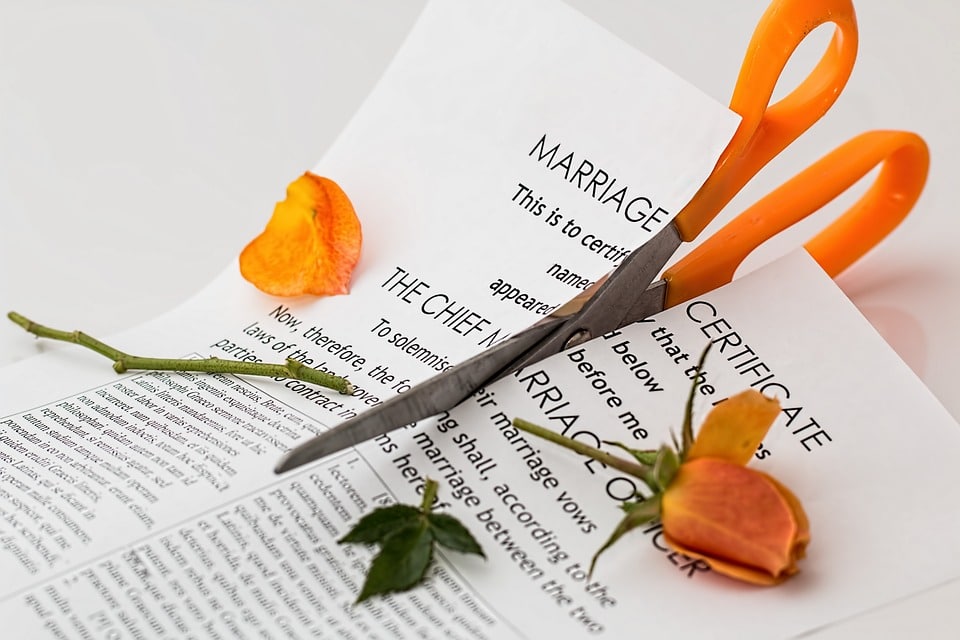Jasmine Birtles
Your money-making expert. Financial journalist, TV and radio personality.


The end of a marriage can often be a time of real hurt and anguish for some couples. The process can be long and draining, and that is even before solicitors, and potentially the courts, get involved.
Money, quite naturally, often sits of the forefront of divorce proceedings. Ensuring an equal financial split of assets between the couple is crucial to ensure everyone can walk away from the divorce knowing they have got what they need and deserve in order to live the rest of their lives.
This guide, written by Olivia Kennedy, Financial Planner at Quilter Private Client Advisers, will help you understand how to handle divorce and pensions to make sure you’re getting what you’re entitled to.

While divorce proceedings often focus in on financial issues, far too often pensions are left behind or are forgotten about. Official figures from the Family Law Courts show there were 118,408 petitions filed for dissolution of marriage in 2018. However, only 14% contained some sort of pension settlement order. This percentage remained consistent throughout 2019 too, highlighting that little progress has been made in the sharing of pensions.
This is a serious issue. As lifestyles and life events have evolved over recent generations, there’s a trend towards people getting divorced later in life, just as they also get married later in life. According to the Office for National Statistics, the median age of divorce for men and women has increased by 10 years between 1987 and 2017.
Those people who divorce later in life have less time to build a retirement pot if they don’t have a pension of their own. This means having the right to divide this asset is of vital importance to avoid slipping into poverty during retirement. It can also help to speak with an experienced divorce lawyer in Gold Coast to understand how pension entitlements may be treated and what steps to take early.
Unsurprisingly, this is a particular issue for women. It is well known there is a pensions gap in the amount saved between men and women. Separate figures from the ONS compound this further by showing that 45% of women or over have no private pension wealth at all.
As such, there is a large cohort of the population, predominantly female, that are relying on a partner or other family members to see them through retirement. For those who are divorced this may not be possible, and thus they need to ensure they have planned for the worst while hoping for the best.
There are a number of reasons that pensions are rarely included in divorce settlements. Part of this may just simply be down to a lack of understanding of the complex area of pension law by divorce practitioners and their clients.
There may also be a dominance of easier methods of dividing assets for a number of reasons. For example, one party might wish to stay in the marital home in lieu of receiving part of their ex-spouses pension rights.
However, pension freedoms have increased public awareness of pensions. The vast majority of the population has now been auto-enrolled into a workplace pension and for the first time are discovering or engaging with pension savings. As such, it now appears that divorce specialists are seeking to improve the knowledge of pensions divorce law. The aim is to make divorce and pensions a standard discussion – not an exception!
As a result, professional advice has become crucial, both in the legal sense and financially. At the end of the day most couples want divorce proceedings to be fair for all parties involved and well informed solicitors and financial advisers can make sure this is the case.
The numbers are still nowhere near where they should be. It should not be acceptable to either divorcing party for pensions to be ignored, since whilst they might not have an immediate impact they will do so later in someone’s life. If you feel your pension entitlements are swept under the carpet, demand them be brought back into discussion!
So, this begs the question of why it is so complicated? And what are the options when it comes to splitting a pension?
When couples divorce they have three different options for how they divide pension assets between them. The primary methods used for pensions are:
This is where pension assets can be offset against other assets, such as the family home.
Introduced at the turn of the millennium, this is where pension assets are divided at the time of divorce in an agreed proportion and there is a clean financial break.
Also known as pension earmarking, where the pension provider of one party pays an agreed amount direct to the former spouse when the pension rights come into payment.
This option doesn’t give you a clean financial break. It risks the loss of future income for the former spouse if the person with the pension rights dies before retiring or the former spouse remarries.
Drilling down into the statistics can tell us more about consumer behaviour towards the asset too.
| Year | Petitions filed for dissolution of marriage | Pension sharing orders | Pension attachment orders | Total pension settlements |
| 2011 | 129,313 | 9,152 | 2,283 | 11,435 |
| 2012 | 124,453 | 9,841 | 3,100 | 12,941 |
| 2013 | 117,508 | 9,538 | 2,888 | 12,426 |
| 2014 | 112,603 | 9,039 | 2,855 | 11,894 |
| 2015 | 114,571 | 8,197 | 2,993 | 11,190 |
| 2016 | 114,127 | 10,394 | 4,243 | 14,637 |
| 2017 | 109,353 | 11,822 | 4,351 | 16,173 |
| 2018 | 118,421 | 11,532 | 4,817 | 16,349 |
| 2019 (Q1-Q3) | 88,217 | 8,586 | 3,395 | 11,981 |
Since 2015, the use of pension attachment orders increased by 61%, while pension sharing orders have risen by 41%. One theory about why this is suggests the rise of do-it-yourself or quick divorces is causing people to go for what appears like a fair method of division that is easy to set up and establish, without knowing the risks associated with them.
It’s important to note that divorcees should be aware of the shortcomings associated with pension attachment orders. Compared to a sharing order or a straightforward settlement, these types of orders have significant weaknesses. For example, in certain cases subsequent factors, like one of the divorcees remarrying, can result in the ex-spouse receiving nothing.
In comparison, pensions sharing orders and offsetting allows a couple to establish a clean financial break. The couple can move on and begin to build their separate lives.

The rules of divorce look set to change in the near future. No-fault divorce – where you both agree to split amicably – could be introduced. This means more people will opt for do-it-yourself divorces – and avoid seeking expert advice.
Even if you and your spouse are on good terms for the divorce, it’s worth talking to an expert. If you don’t, you could miss out on many pension benefits.
Not only that, but with the advent of pension freedoms in 2015, those with pension attachment or earmarking orders may want to check the details of the arrangement that has been made. For example, if your ex-spouse has an earmarking order that entitles you to a fixed percentage of their pension income, you might not get anything if they take it as cash not income. An expert would talk you through this and make sure you understand the implications.
These types of orders came into being around a quarter of a century ago so many people may have forgotten what the exact terms were. The fact that pension cash can now be so easily accessed in this pension freedoms world shows the importance of checking the small print to ensure you get what you are entitled to.
Ultimately, divorce is an emotional and stressful period for those who have to go through it. Divorce and pensions don’t naturally sit together in our minds, either. As we have seen above this is particularly problematic given the average age of divorcees and it is more likely that a woman will not have any sizeable pension of their own.
There are a number of free resources that will help you get started. However, every divorce case is different and you should ensure you consider your needs. The Pensions Advisory Service run by the Money & Pensions Service has numerous guides and links to help you get started with understanding what you may be entitled to.
If you have a pension that is likely to be included in any upcoming divorce proceedings, speak to your provider now. They’ll tell you what options you have available, as well as the logistics around splitting the asset or inserting an attachment order. You can also find out things like example the time it will take to set things up, what information they will need to do so etc.
Finally, if you are in any doubt then financial advice can go a long way to ensuring you receive the best outcome. Many experts offer free initial consultations so they can understand your situation and what is important to you. Working in together with a knowledgeable and diligent solicitor, professional advice can make all the difference and ensure you do not neglect what is a vital asset in your older age.

Some useful information here.